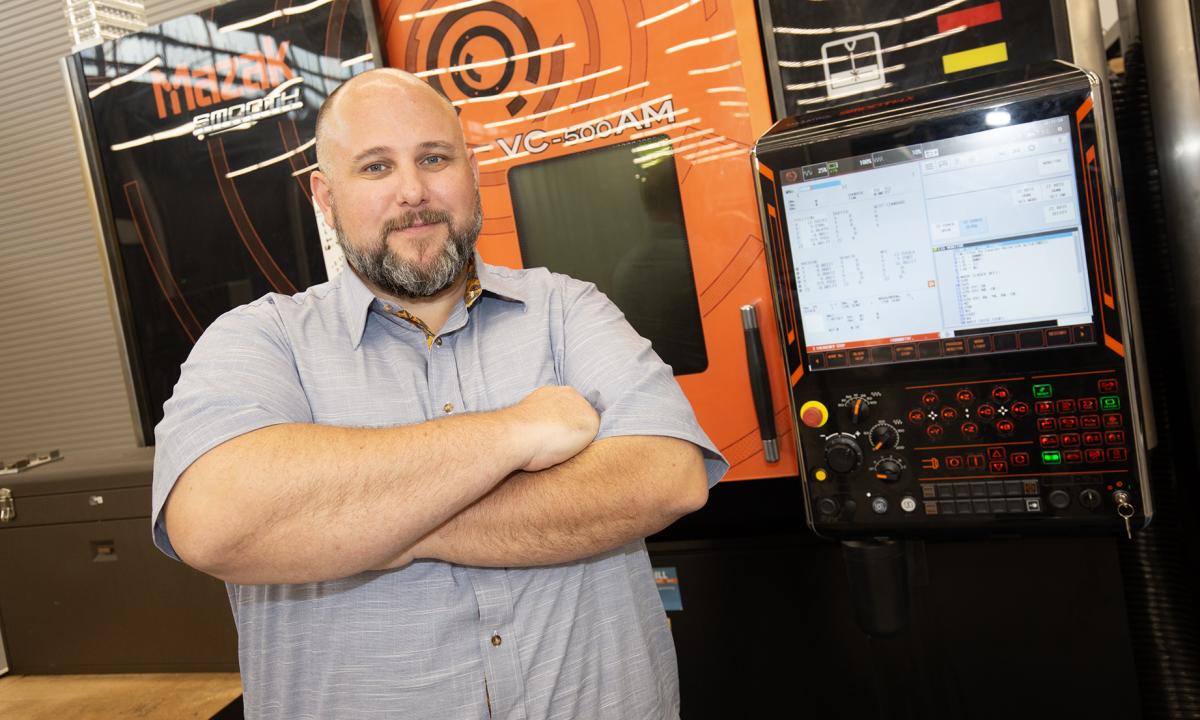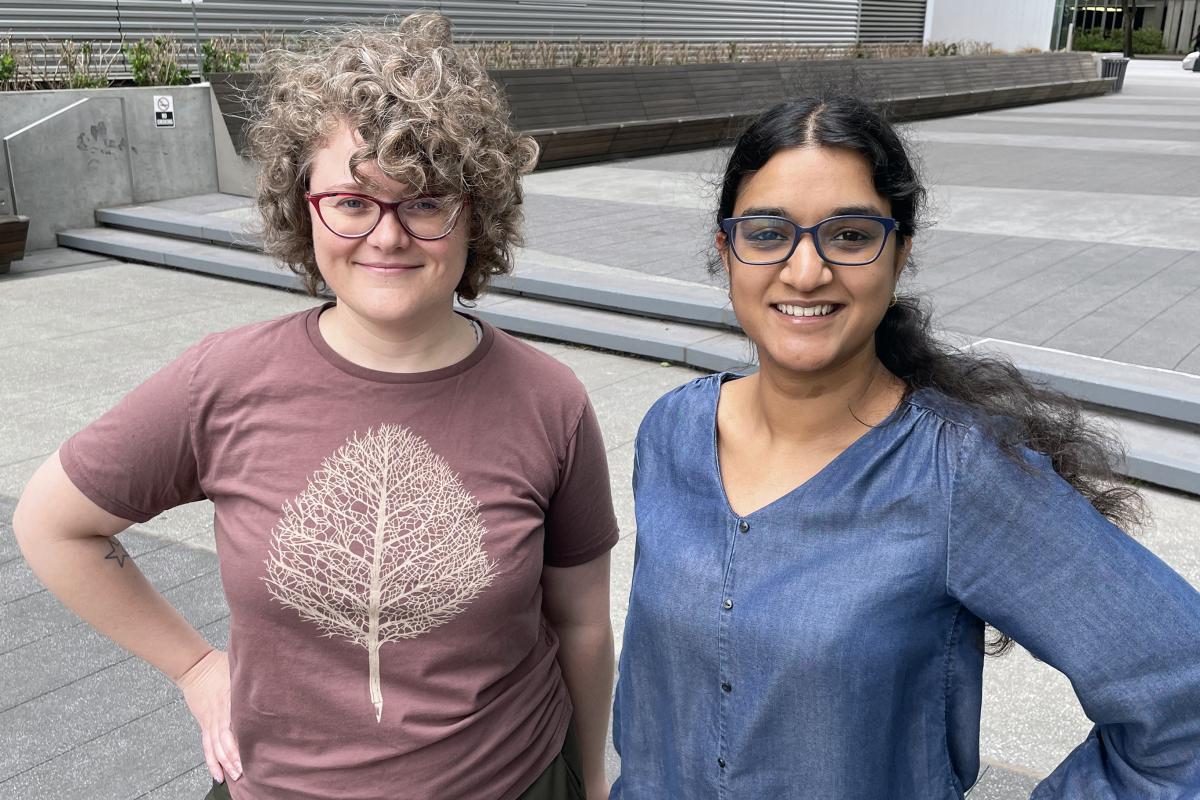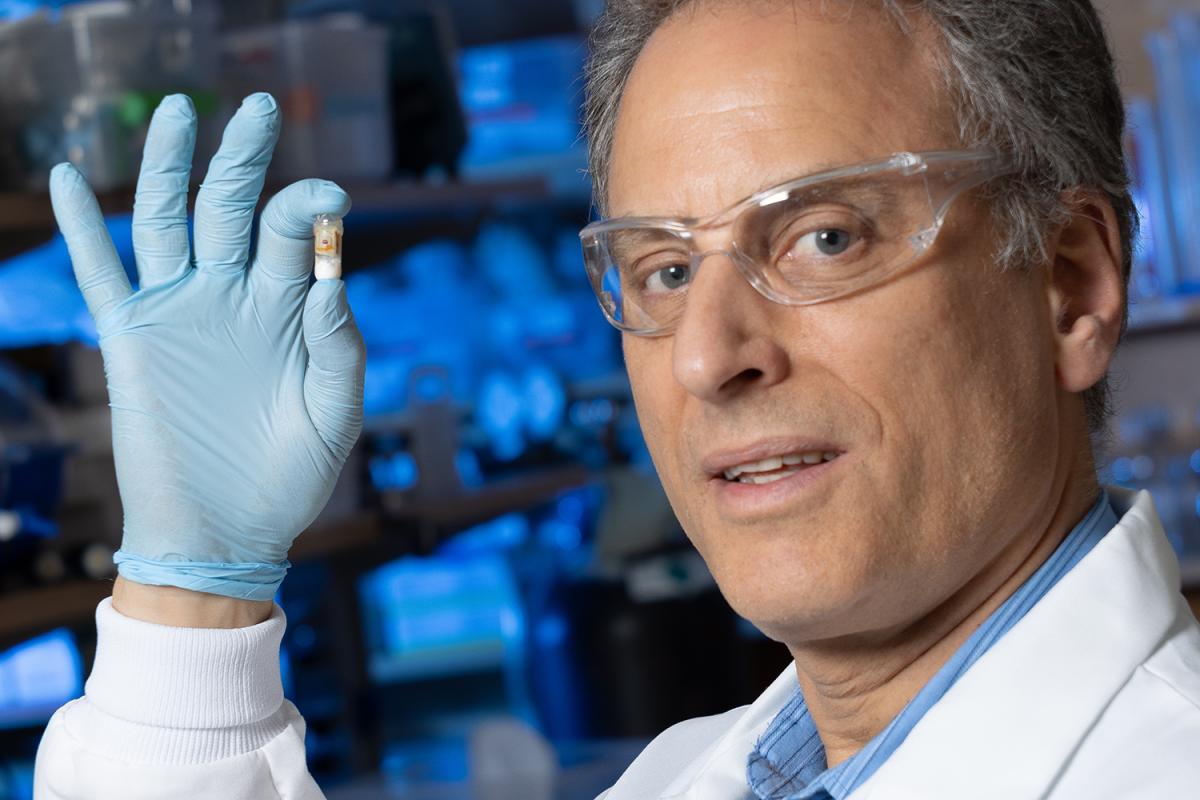The College boasts top talent in every research department across all eight schools. Our best-in-class faculty with their many awards and grants is proof of our preeminence. Each faculty member excels at pushing the boundaries of innovation in engineering through interdisciplinary collaboration.
Taking Big Swings
The U.S. Army is funding a $20 million effort led by Aaron Stebner (Mechanical Engineering) that aims to turn aluminum scrap into low-cost, clean hydrogen power. More
Anant Madabhushi (Biomedical Engineering) and Emory University collaborators are leading a $17 million project to improve cancer surgery outcomes by helping doctors quickly and accurately evaluate surgical margins. They’re starting with breast and ovarian cancers in the research supported by the Advanced Research Projects Agency for Health (ARPA-H). More
The National Institutes of Health (NIH) has awarded $7.5 million to Ankur Singh (Biomedical Engineering & Mechanical Engineering) for his work creating functional models of the human immune system in the lab. More
Early Career Faculty Awards
Many of our faculty are just beginning their careers when they come to Tech. They are on the cutting-edge of their research areas, studying the most current research methods and technologies. These outstanding early career faculty have been honored with awards for their work.
Juan-Pablo Correa-Baena (Materials Science and Engineering) has been honored with a Presidential Early Career Award for Scientists and Engineers (PECASE) for his work on new kinds of solar cells. More
National Science Foundation CAREER Recipients
- Alex Abramson (Chemical and Biomolecular Engineering) for a project that aims to develop and optimize a communication platform that allows multiple wearable and implantable devices to network with each other throughout all tissue layers in the body. More
- Elizabeth Qian (Aerospace Engineering) for work on computational methods to help engineers combine results from different simulation models when making design decisions. More

Aaron Stebner

An illustration of metal halide perovskites studied by Juan-Pablo Correa-Baena.
Faculty Highlights
In the 2024-25 academic year, many of our faculty members were recognized by national and international organizations. A few highlights:
National Academy Inductees
Antonio Facchetti (Materials Science and Engineering) was elected to the National Academy of Engineering. More
Mark Prausnitz (Chemical and Biomolecular Engineering) was elected to the National Academy of Medicine. More
Larry Heck (Electrical and Computer Engineering) and Younan Xia (Biomedical Engineering) became members of the National Academy of Inventors. More
The Japan Prize
Russell Dupuis (Electrical and Computer Engineering) was recognized with the highly regarded Japan Prize for laying the founding for LEDs, solar cells, lasers, and other everyday technology. More
Significant Honors
Tim Lieuwen (Aerospace Engineering) received the 2025 ASME Medal, the highest honor awarded by the American Society of Mechanical Engineers. Lieuwen also was elected to the United Kingdom’s Royal Academy of Engineering.
Steven Biegalski (Mechanical Engineering, Nuclear and Radiological Engineering) was honored with the 2025 George Hevesy Medal, the highest international award for career achievements in applied nuclear and radiochemistry. He’s the first engineer to win the medal and just the seventh American. More
Suman Datta (Electrical and Computer Engineering) received the 2024 University Research Award from the Semiconductor Research Corp. and Semiconductor Industry Association for his lifetime contributions to the industry. More
American Association for the Advancement of Science Fellows
Wilbur Lam and Anant Madabhushi (Biomedical Engineering), Krista Walton (Chemical and Biomolecular Engineering), and Chaouki Abdallah (Electrical and Computer Engineering) were named fellows of the American Association for the Advancement of Science (AAAS). More
Regents' Professors, Innovators, Entrepreneurs, and Researchers
Regents' titles are the highest academic and research recognition bestowed by the University System of Georgia Board of Regents. In the last year, four additional engineering faculty members were named to these prestigious positions:
- Manos Antonakakis (Electrical and Computer Engineering), Regents’ Innovator
- F. Levent Degertekin (Mechanical Engineering), Regents’ Entrepreneur
- Paul Kohl (Chemical and Biomolecular Engineering), Regents’ Entrepreneur
- Steven Liang (Mechanical Engineering), Regents’ Professor

Eva Dyer and Vidya Muthukumar received Early Career Development Awards from the National Science Foundation in 2023. They're also working together on an NSF project to train artificial intelligence models on more detailed, augmented datasets.

Mark Prausnitz was elected a member of the National Academy of Medicine. Among the innovations he has developed in the School of Chemical and Biomolecular Engineering is a self-pressurized capsule capable of delivering drugs that usually require injection.(Photo: Candler Hobbs)